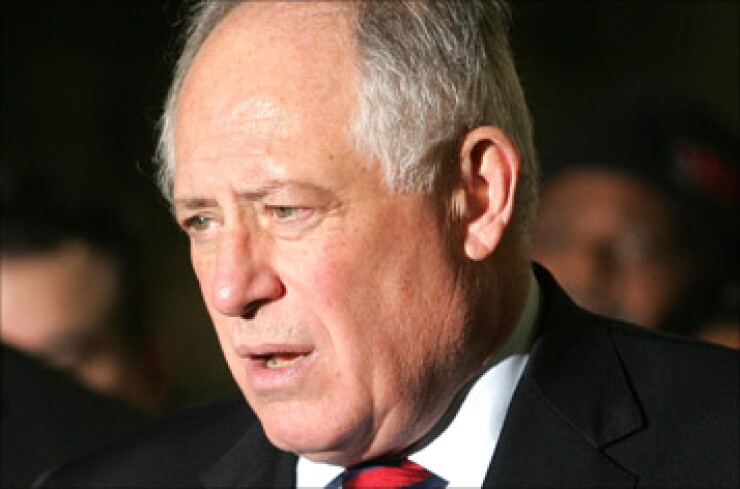
CHICAGO - Illinois Gov. Pat Quinn raised the idea of sharing more state income tax revenue with local governments to stabilize their local pension systems.
"I am very open to discussing with our local units of government a way to share some of the income tax revenue beyond what we are today in order to help them with their challenges," Quinn said at the City Club of Chicago Monday.
The revenue source could help local governments like Chicago ease the burden of shoring up their underfunded pension funds by adding a potential funding source other than property tax increases.
Chicago's planned overhaul of two of its four pension funds relies on raising property taxes by $50 million annually over the next five years.
Lawmakers earlier this month approved Chicago Mayor Rahm Emanuel's plan to cut benefits and raise city and employee contributions after the city stripped out language requiring a property tax hike to cover at least half of its increased payments. The city still expects to rely heavily on property taxes but the City Council must now approve the increased levy.
Quinn has not said whether he would sign the Chicago pension bill and declined the opportunity Monday when asked after the speech. Quinn has been critical of the need for a sizeable property tax hike. The idea of greater sharing of the income tax revenue could help sell local lawmakers on making permanent the 2011 income tax hike
The governor's speech focused on his proposed fiscal 2015 budget, five-year financial program, and proposal to make an expiring temporary income tax increase permanent.
Income tax sharing could serve as a "an alternative to property tax financing," Quinn said. "I'm anxious to work with our mayors to try to come up with a good solution .we should not rely on a regressive property tax."
Emanuel's administration said it welcomed the idea of more funding through the state's local government distributive aid formula, which has been cut in the past but called on Quinn to sign the pending legislation. The state doles out about 6% of personal income taxes and 6.8% of corporate tax collections to local governments. That figure totals about $1.3 billion.
"Regardless, it is imperative that Gov. Quinn sign the pension reform legislation immediately to secure the retirement of our workforce and a bright future for all of Chicago," said budget spokeswoman Kelley Quinn.
The city has been critical of various revenue sources floated as alternatives to a property tax hike, warning that it needs a reliable revenue stream to ensure the plan to shore up the pension funds works, and to maintain union support for the plan.
Any diversion of income taxes would hit state coffers, raising questions over whether the state can afford to increase its income tax distribution to benefit local governments.
Quinn used his speech to sell his budget plan as a way to cut property taxes and increase education funding. If lawmakers do not go along with his plan to make permanent an expiring income tax hike, deep cuts would be needed and the state's $5 billion bill backlog could skyrocket. "That is a charter for the future," Quinn said of his budget and accompanying five-year plan.
Rating agencies have said the state could see its credit stabilize if courts uphold state pension reforms passed last December and the 2011 tax hike is made permanent as the governor proposes.
Illinois is the weakest state rated at the A-minus level with a negative outlook from two rating agencies and a developing outlook from Standard & Poor's.
Chicago wants Quinn to sign the legislation overhauling the laborers and municipal pension funds so it can move on to a more elusive fix for its police and fire funds. The city is facing a looming spike in the 2016 budget of $600 million to meet a prior state mandate to stabilize those funds. The city's $19.5 billion of unfunded pension liabilities have driven its credit deterioration over the last year.





